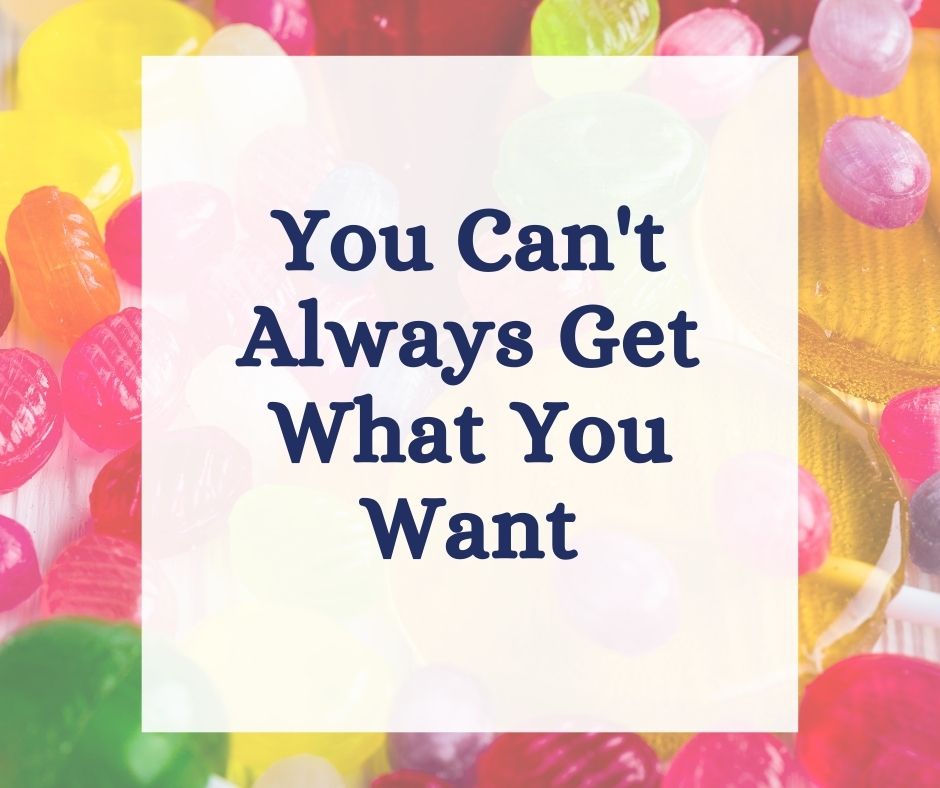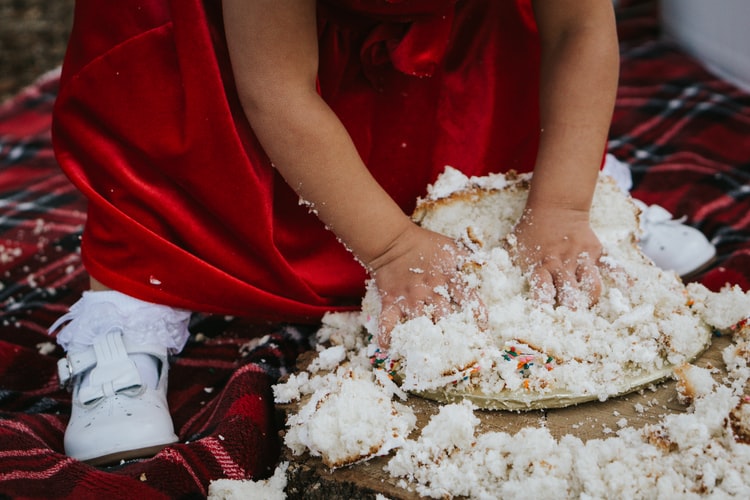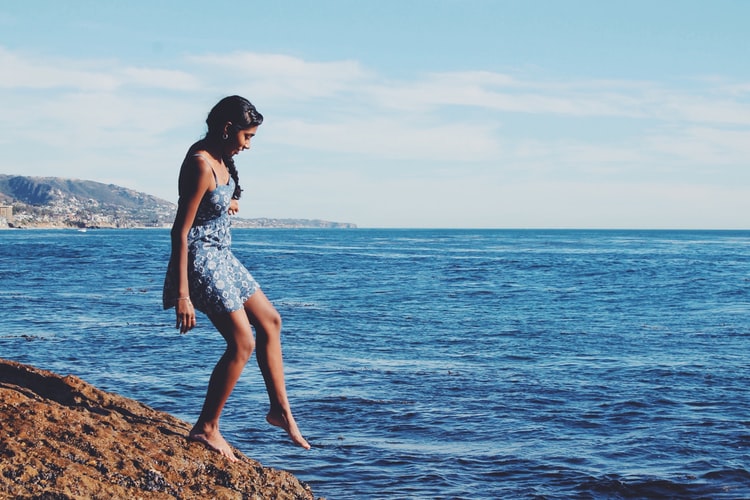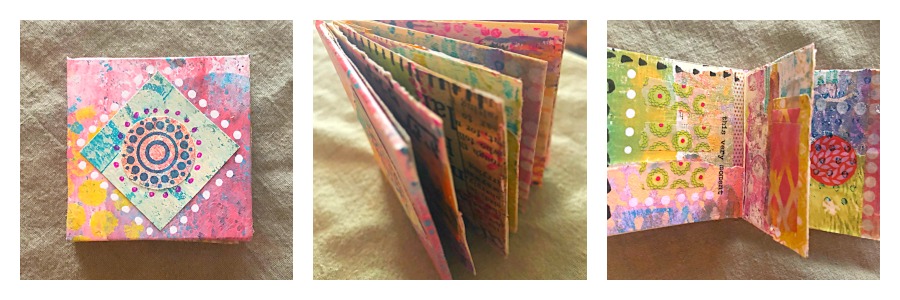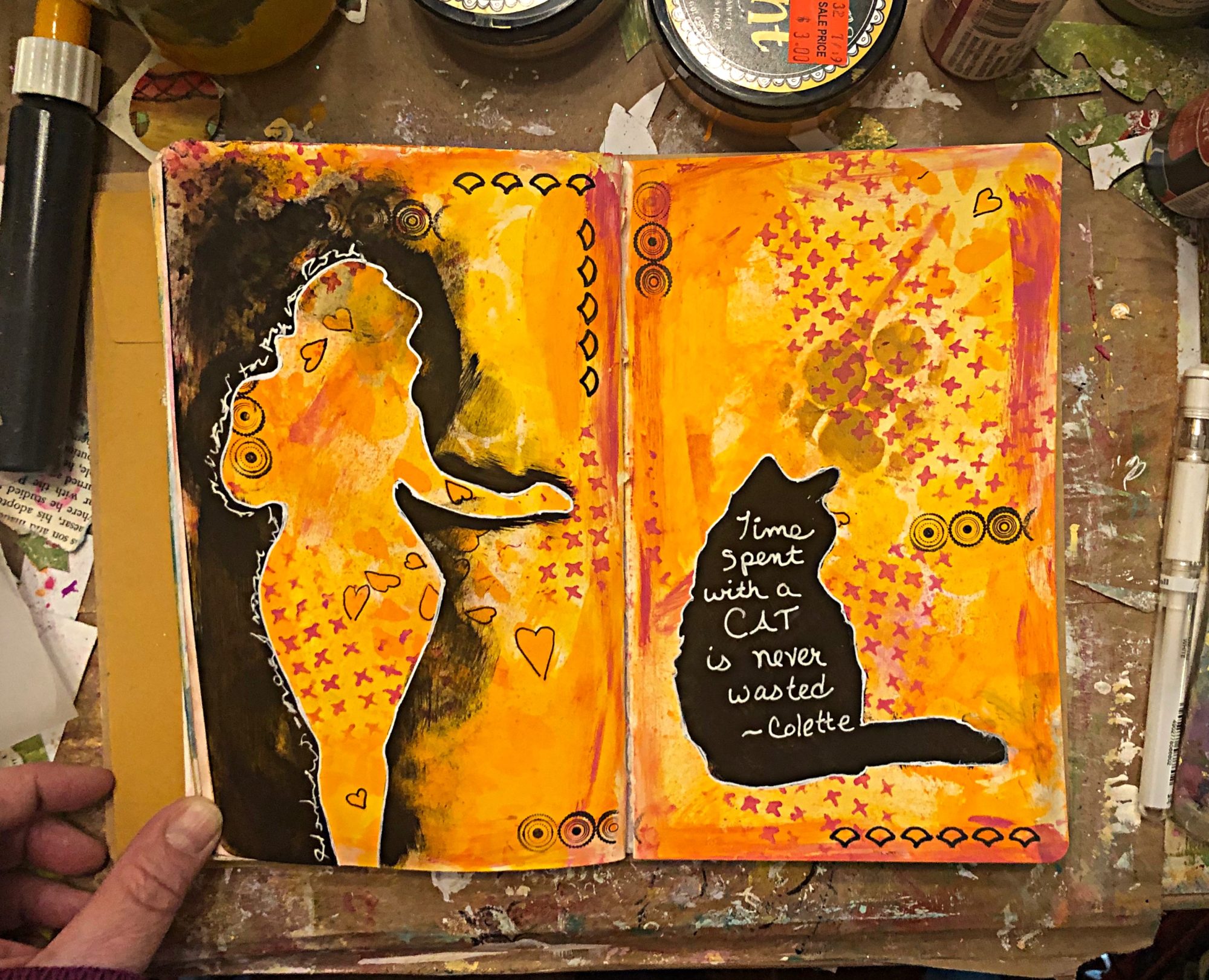
I made this over the weekend from a Wanderlust lesson. I was really resistant to this lesson and kept letting myself get busy and not get to it, but finally I told myself to just do it so I could move on. I wanted to change the instructions, do some other things, do something easier than cutting out the fussy silhouettes... But I made myself follow the rules so I could learn the techniques.
I love this spread! A lot. I will probably do this again. I will probably add some of the things I was going to do in place of the stencil and mask to see what happens. But I wouldn't have that base to start from for experiments if I hadn't first followed the rules and learned the techniques.
So what are my takeaways here?
- If you're really resistant to something, you should do it to find out why. For me, I don't do silhouettes and I was uncertain of how to do the paint around the edge of the mask, and I wanted writing in the cat silhouette but don't like my handwriting, so I was avoiding all of it.
- Follow the steps. Learn the techniques the way they're laid out (like when you're learning to cook a new food), then you can change things up, experiment, make it your own.
- Try out things even if the final product looks like something you don't like. You still might find techniques that you can use to make things you do like.
That's all I have today. It's been a busy week, and I'm tired but want to spend some time reading some blogs before bed (it's such a great way to unwind!). What things might you stretch yourself by doing? I'd love to hear what you're trying out.
Until next time,
Kim


